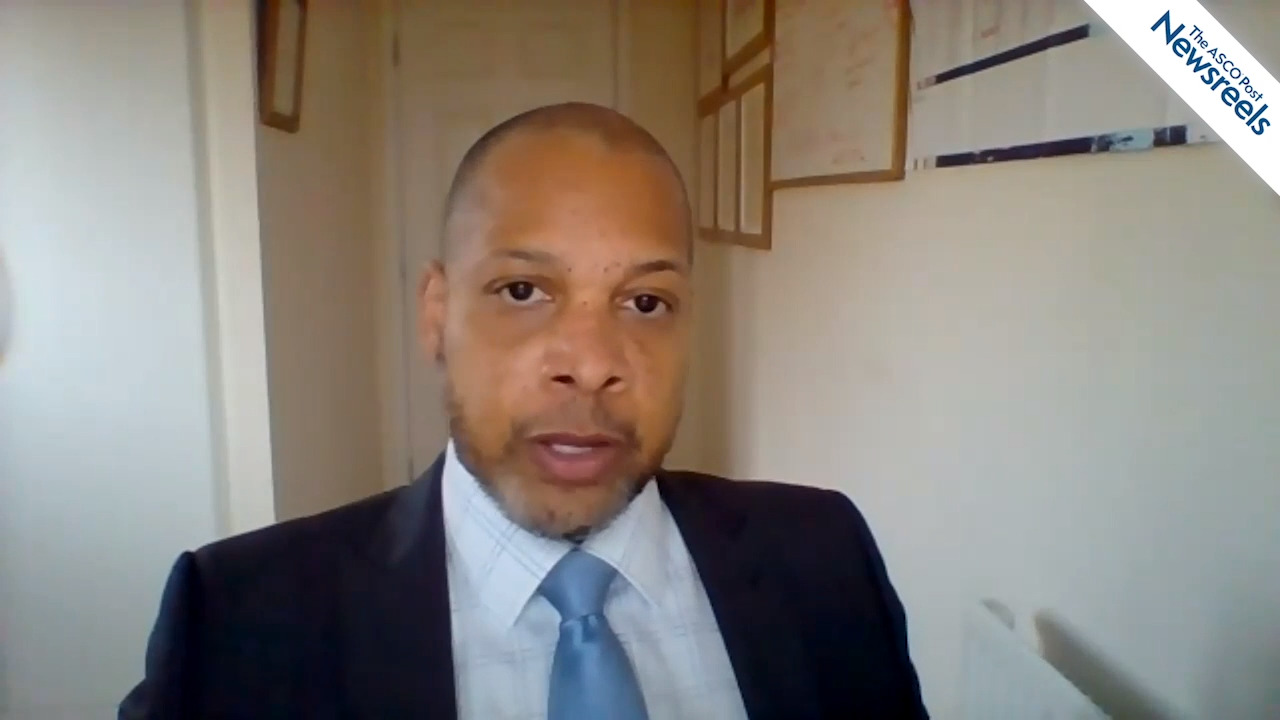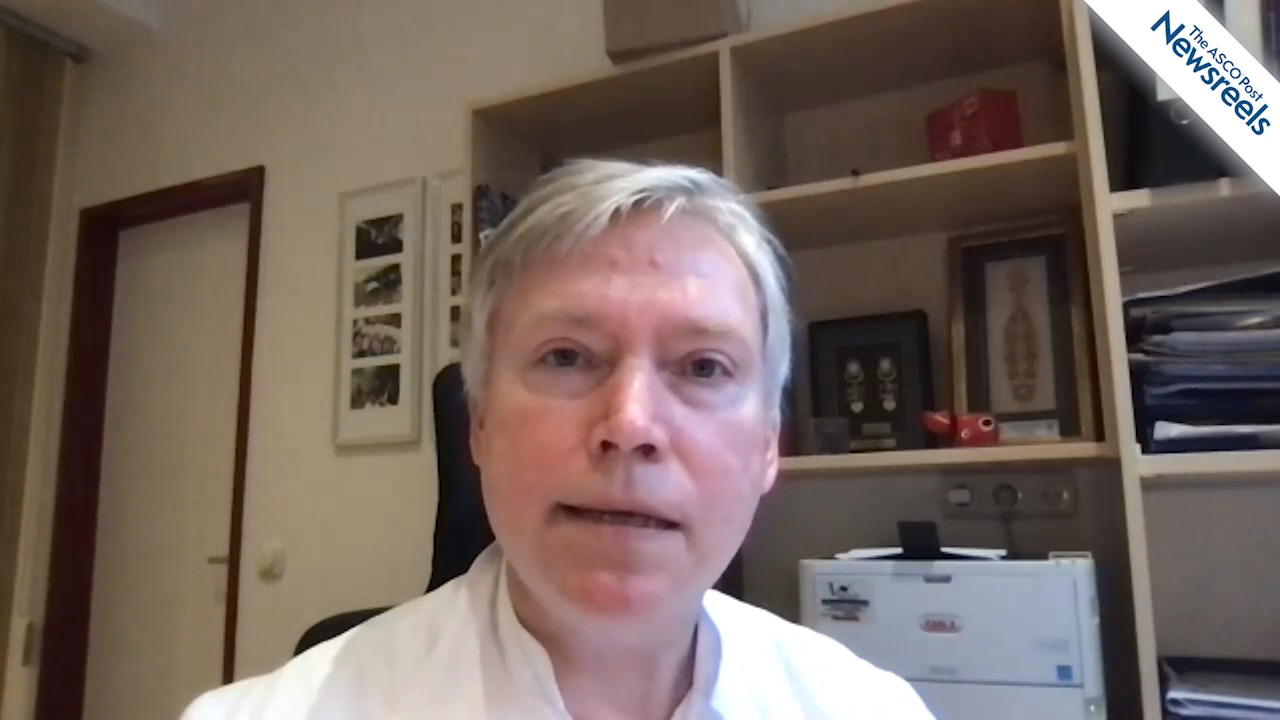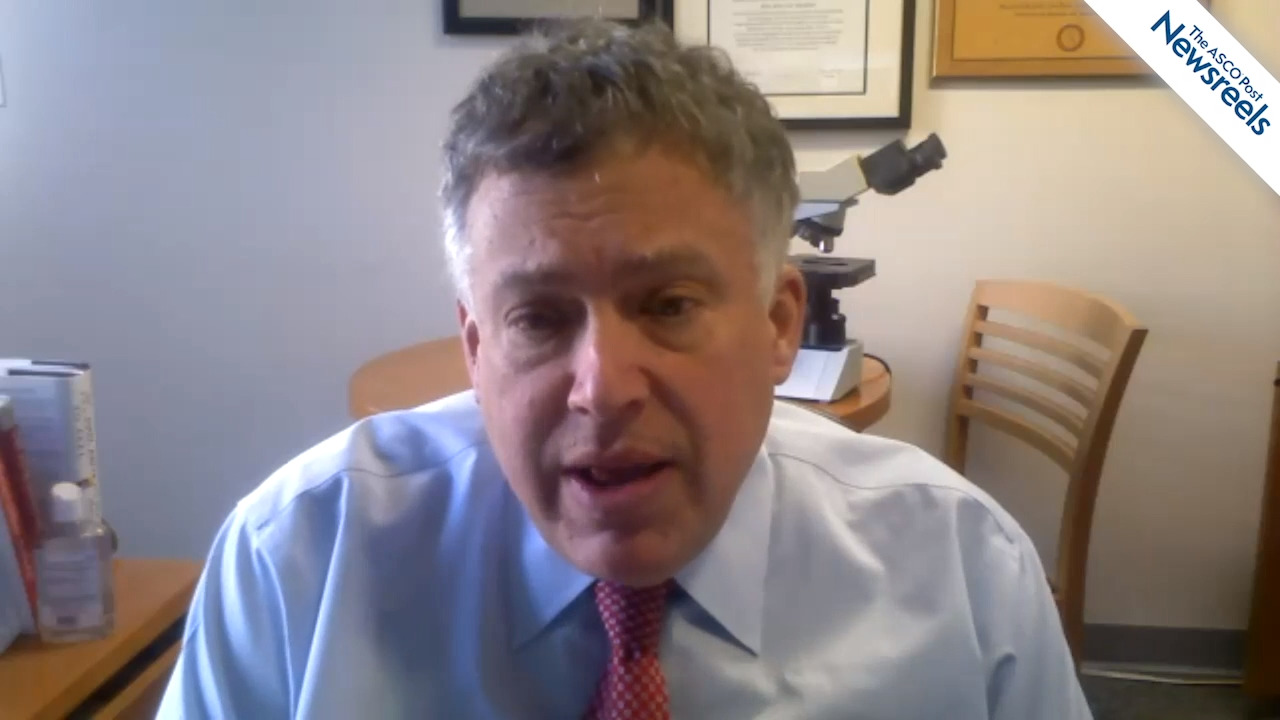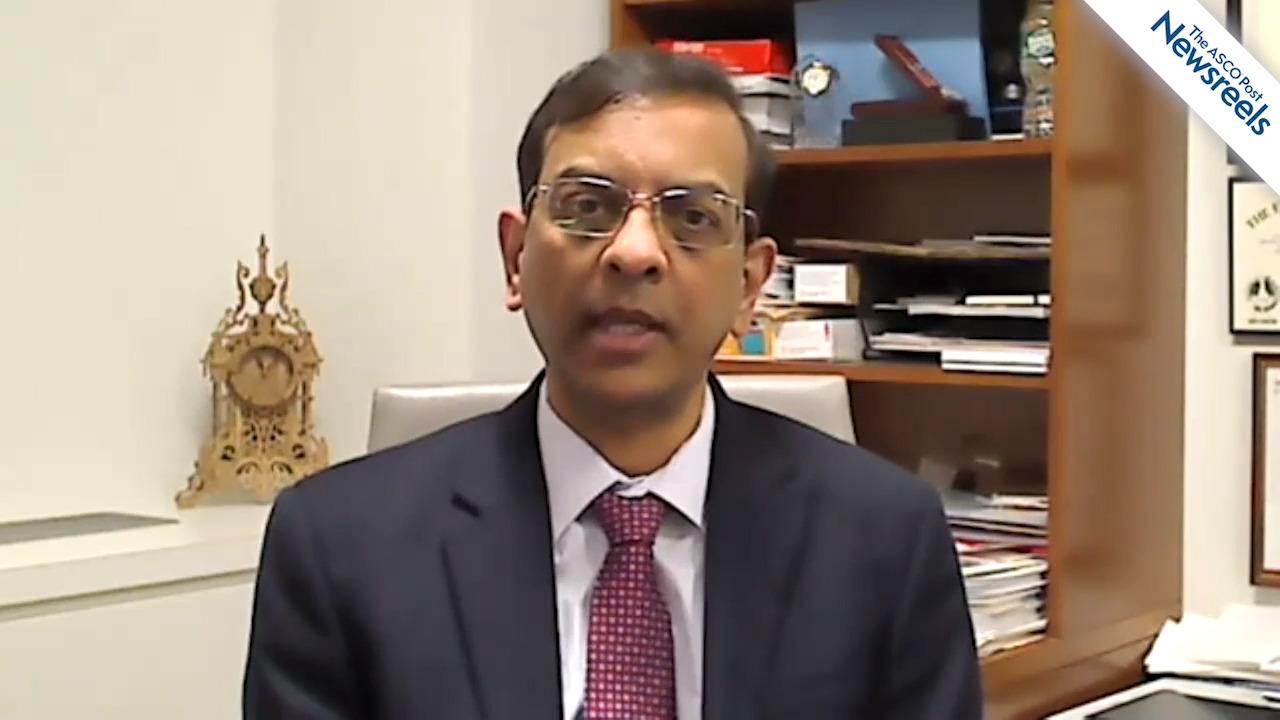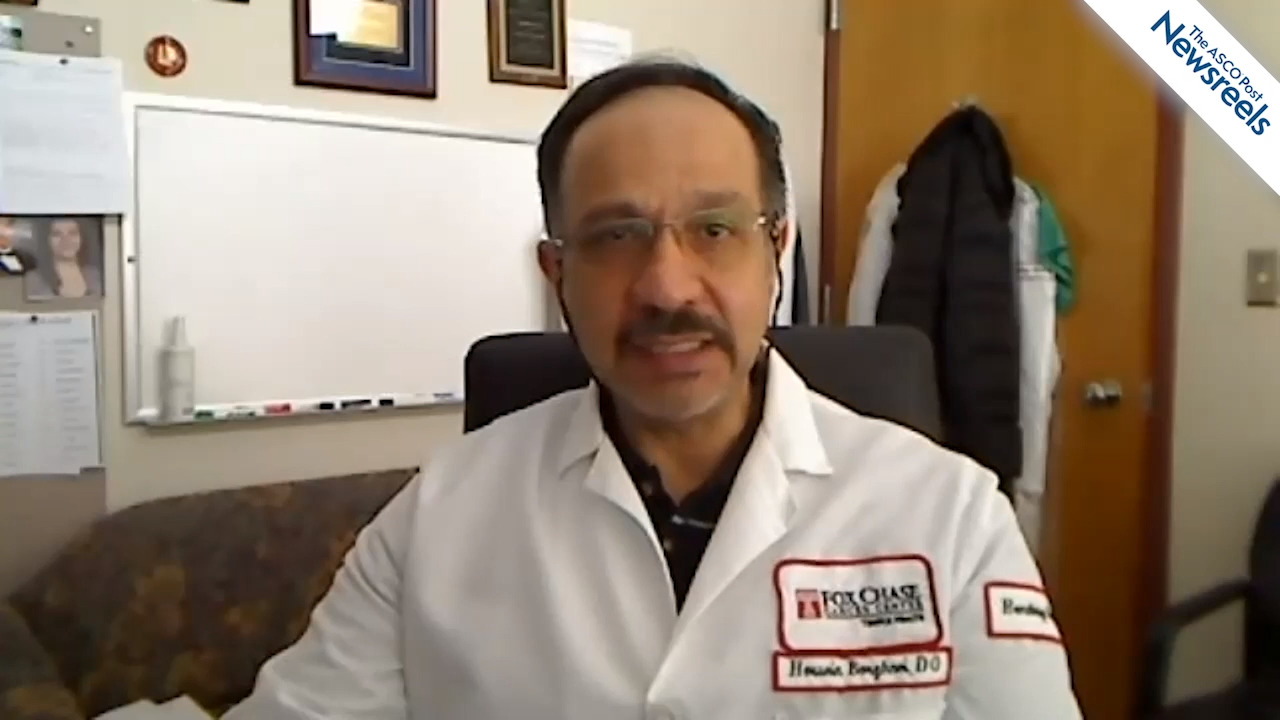Jill Feldman: A Determined Cancer Survivor Shares Her Story of a Family Devastated by Lung Cancer
IASLC 2020 World Conference on Lung Cancer in Singapore
Jill Feldman, a patient advocate who has lost five family members to lung cancer and is herself a 12-year cancer survivor living with EGFR-positive disease, describes her family history of cancer, how she has worked with her physicians for more than a decade to survive her own diagnosis, and the message she would like all oncologists to hear.
The ASCO Post Staff
Dean Fennell, FRCP, PhD, of the University of Leicester, discusses phase III results from the CONFIRM trial, which sought a standard immunotherapy treatment to improve overall survival for patients with mesothelioma who have relapsed after taking pemetrexed and cisplatin. Globally, the incidence of mesothelioma is on the rise; in the United Kingdom alone, it has gone up nearly 500% since the 1970s (Abstract PS01.11).
The ASCO Post Staff
Martin Reck, MD, PhD, of LungenClinic, discusses results from the IMpower133 study of carboplatin plus etoposide with or without atezolizumab in patients with untreated extensive-stage small cell lung cancer (Abstract OA11.06).
The ASCO Post Staff
Roy S. Herbst, MD, PhD, of Yale University, discusses two key abstracts from the ADAURA trial: the use of osimertinib as adjuvant therapy for resected EGFR-mutated non–small cell lung cancer; and patient-reported outcomes, which showed a benefit in disease-free survival and maintenance of health-related quality of life in patients with resected stage IB to IIIA disease (Abstracts OA06.04 and OA06.03).
The ASCO Post Staff
Prasad S. Adusumilli, MD, of Memorial Sloan Kettering Cancer Center, discusses ongoing CAR T-cell therapy clinical trials for solid tumors, the key determinants of success for developing this treatment, and some study results to date (Abstract PL03.05).
The ASCO Post Staff
Hossein Borghaei, DO, of Fox Chase Cancer Center, discusses phase I results from a study of AMG 757, an experimental bispecific T-cell–engager (BiTE) immune therapy aimed at the DLL3 molecular target in patients with small cell lung cancer. At this early stage, results show clinical efficacy and safety, with 37% of 51 evaluable patients exhibiting disease control (Abstract OA11.03).
